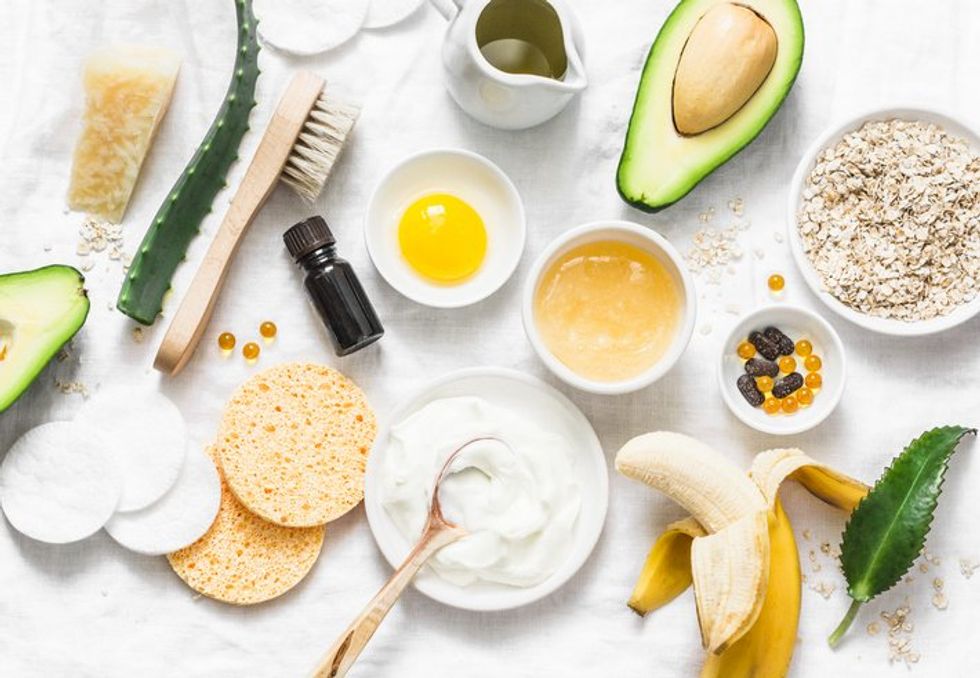Apple pie. Chocolate chip cookies. Spaghetti sauce. All of these things become instantly more attractive when you add the word “homemade.”
But what about face lotion, masks and toners? Homemade skincare products have been gaining popularity online as less expensive and more natural alternatives to store-bought creams. A quick search for DIY skincare turns up hundreds of different recipes and videos on how to mix your own moisturizers, serums and even sunscreen.
But when it comes to your skin — your body’s biggest organ — should you make your own mixtures?
Read: Holiday Skincare & Beauty Tips >>
Sanitary and safety concerns
By definition, homemade means made at home. And we know your house is clean, but it’s not as product-worthy as you may think. “Skincare products are made in facilities that have certain standards, and products have to be prepared in a certain way to limit exposure to pathogens like bacteria,” said Lauren Fine, M.D., a board-certified dermatologist.
Pretty much everything in a home setup — mixing tools, bottles, containers, etc. — can be breeding grounds for fungi and other microorganisms. The environment can be a problem, too, as mold and bacteria thrive around water in places like the bathroom where most skincare products are stored.
Some homemade recipes recommend adding things like essential oils as a way to stop mold and bacteria. But there can be different pathogens (organisms that cause disease) growing that you can’t see or smell. And that can lead to irritation, infection and even damage your skin.
Fine noted that the ingredients themselves can spoil and become ineffective since you can’t gauge the shelf life of something that hasn’t been researched or tested in clinical trials. “There’s just a lot of room for error, and it could be very harmful,” Fine said.
Natural isn’t necessarily better

iStock.com/OksanaKiian
Going DIY with ingredients that aren’t made in a lab and sourced from plants sounds like a good idea. But natural ingredients can have adverse effects too. For example, some plants have substances that can be toxic or allergenic. “One thing that’s hugely important that people don’t realize is that natural doesn’t mean it’s safe,” Fine said. “A lot of people have allergies or contact dermatitis from ingredients like essential oils.”
One recent study found that almost all the commercial lotions, soaps and fragrances marketed as “all natural” had ingredients that could trigger contact dermatitis, skin irritation that comes from being in contact with an irritant.
Ingredients bought online or in the grocery store may be natural, but you still don’t have any way of knowing if they’re effective or safe without the proper testing to back it up. And things like essential oils aren’t regulated by the FDA, so you could also get a concentration that is higher or lower than advertised and that may have a negative impact on your skin. Or your at-home mix may have no impact at all.
Don’t DIY sunscreen
One of the hottest DIY skincare trends making the rounds on social media involves making your own sunscreen. The mixtures typically include zinc oxide powder as the active ingredient. And while zinc-based sunscreens are an option and a good option if you want to avoid sunscreen with chemicals, Fine said DIY recipes for sunscreen are nothing to mess with.
“Homemade sunscreen is definitely a no,” she said.
Read: 10 Things You Must Know to Enjoy the Sun Safely >>
For one, the active ingredients in commercial sunscreen have been tested and verified and the product label tells you how much SPF protection you’re getting.
If you DIY your sunscreen, you’re not guaranteed any protection because it hasn’t been tested or verified.
Store-bought sunscreen also includes ingredients that keep the active ingredients working (most sunscreens last for three years). But you can’t be sure how long a homemade blend with zinc oxide will work — if it works at all — because there’s no way to know the shelf life.
Fine said to forget homemade sunscreen and stick to the store-bought options with the SPF clearly printed on the label so you know you’re protected. “You can DIY for home improvement but when we’re talking about your skin I wouldn’t recommend it.”
FYI on the DIY: Better to skip this one
Although it’s tempting to try to save some cash and make your own skincare products and sunscreen, it’s best to save the homemade recipes for recreating your grandma’s apple pie.
From Your Site Articles
Related Articles Around the Web